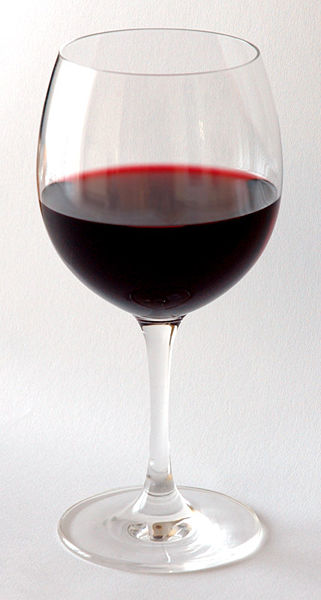This week, researchers from The University of Pittsburgh have found that a chemical similar to that found in red wine can protect against radiation sickness.
 Specifically, they looked at gamma (γ) radiation and how its effects might be reduced by a substance similar to resveratrol. Resveratrol is an antioxidant commonly found in wines, grapes and nuts; and plants commonly use it to fight off bacterial or fungal infections. The reason the researchers think that an antioxidant might help in protecting against radiation exposure is that they 'mop-up' the free radicals that gamma radiation can produce. And it's these ionised free radicals which do the cell damage.
Specifically, they looked at gamma (γ) radiation and how its effects might be reduced by a substance similar to resveratrol. Resveratrol is an antioxidant commonly found in wines, grapes and nuts; and plants commonly use it to fight off bacterial or fungal infections. The reason the researchers think that an antioxidant might help in protecting against radiation exposure is that they 'mop-up' the free radicals that gamma radiation can produce. And it's these ionised free radicals which do the cell damage.
Publishing in ACS Medicinal Chemistry Letters, Michael Epperly and colleagues first tested the naturally-occurring resveratrol on live cells in flasks, which were exposed to radiation. They found that these cells were given some protection by the chemical but, when they tested it on a mouse, it had very little positive effect. So the researchers turned to another, similar chemical known as acetyl-resveratrol. This time, the drug produced an eighty per cent survival rate amongst the mice. The difference between the two drugs efficacies is most likely because acetyl-resveratrol is more slowly metabolised and therefore lasts longer to provide its protective effects.
And the authors also argue that this could be good news for cancer patients, since the other candidates for anti-radiation drugs work by suppressing cell apoptosis (that is, cell death) and could therefore aggravate a cancer. Because they think acetyl-resveratrol is using a different mechanism, it could be a better alternative and, they add, it is relatively cheap to produce.










Comments
Add a comment